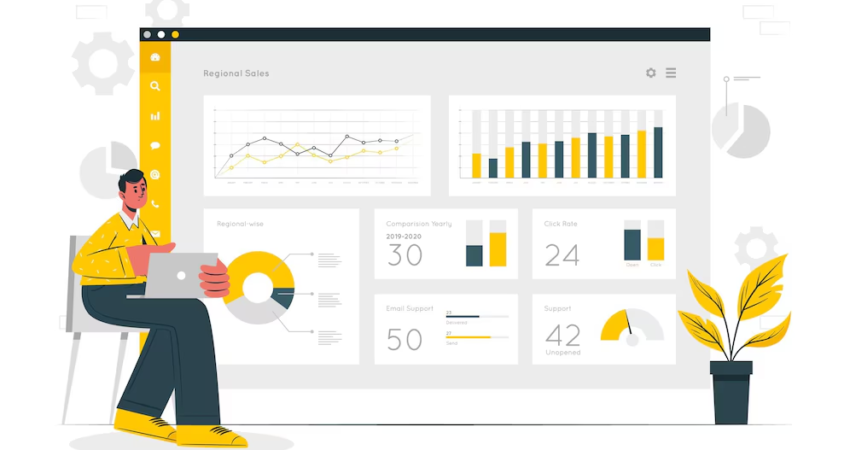
Manmeet Singh
- July 2, 2024
- 17 min read
- Marketing Automation
- Blog
I. Introduction to CRM Systems
II. Features and Functionalities
III. Ease of Use and User Experience
IV. Pricing and Cost Considerations
V. Customization and Scalability
VI. Integration and Ecosystem
VII. Conclusion and Recommendation
Introduction to CRM Systems
In today’s rapidly evolving business landscape, Customer Relationship Management (CRM) systems have become indispensable tools for organizations striving to enhance their customer interactions and streamline their operations. Let’s delve into the fundamentals of CRM systems to better understand their significance and explore the key considerations when choosing between two of the most prominent options: HubSpot and Salesforce.
What is a CRM?
A Customer Relationship Management (CRM) system serves as a centralized platform designed to streamline and enhance customer interactions across various touchpoints. It aggregates customer data, automates workflows, and facilitates targeted communication, ultimately fostering stronger relationships with clients.
The Role of CRM in Modern Businesses
In today’s hyper-competitive marketplace, where customer expectations are constantly evolving, CRM has emerged as a cornerstone of business success. By enabling organizations to cultivate more personalized and meaningful relationships with their customers, CRM fosters loyalty, drives repeat business, and ultimately, fuels sustainable growth.
Key Benefits of Implementing a CRM System
- Enhanced Customer Engagement: By leveraging CRM, businesses can tailor their marketing, sales, and customer service efforts to better meet the needs and preferences of individual customers, leading to higher engagement and satisfaction levels.
- Improved Operational Efficiency: CRM streamlines various business processes, such as lead management, pipeline tracking, and customer support, thereby reducing manual workload, minimizing errors, and enhancing overall efficiency.
- Data-Driven Decision Making: With access to comprehensive customer data and advanced analytics capabilities, CRM empowers businesses to make informed decisions, identify trends, and forecast future opportunities with greater accuracy.
- Scalability and Flexibility: Whether you’re a small startup or a large enterprise, CRM systems are designed to scale alongside your business, offering customizable features and integrations to accommodate your evolving needs and growth trajectory.
Features and Functionalities
In the competitive landscape of CRM solutions, understanding the core features and unique offerings of HubSpot and Salesforce is crucial for making an informed decision tailored to your business needs.
Core Features of HubSpot
- Contact and Lead Management: HubSpot’s CRM offers intuitive contact and lead management capabilities, allowing businesses to efficiently organize and track interactions with prospects and customers throughout the sales cycle.
- Marketing Automation Tools: HubSpot provides robust marketing automation tools that enable businesses to automate repetitive tasks, segment audiences, and deliver personalized content, driving engagement and conversion.
- Sales Pipeline and Management Tools: With HubSpot, businesses gain access to a comprehensive sales pipeline and management tools, facilitating efficient lead nurturing, deal tracking, and sales team collaboration.
- Customer Service and Support Features: HubSpot’s CRM extends beyond sales and marketing to include customer service and support features, empowering businesses to deliver exceptional customer experiences through ticketing, knowledge base, and live chat functionalities.
- Integrations with Other Tools and Platforms: HubSpot offers seamless integrations with a wide range of tools and platforms, allowing businesses to extend the functionality of their CRM and integrate it into their existing tech stack effortlessly.
Core Features of Salesforce
- Contact and Account Management: Salesforce excels in contact and account management, providing robust tools for organizing, tracking, and managing customer interactions and relationships at scale.
- Sales Automation and Forecasting: Salesforce’s sales automation capabilities streamline repetitive tasks, automate workflows, and provide powerful forecasting tools to help businesses optimize their sales processes and drive revenue growth.
- Service Cloud and Customer Support Tools: With Salesforce’s Service Cloud, businesses can deliver exceptional customer support experiences through case management, knowledge base, and omnichannel support capabilities, ensuring timely and personalized assistance.
- Marketing Cloud and Automation: Salesforce’s Marketing Cloud offers advanced automation and personalization features, empowering businesses to orchestrate multichannel marketing campaigns, analyze performance metrics, and drive ROI.
- Customization and Integration Capabilities: One of Salesforce’s key strengths lies in its extensive customization and integration capabilities, allowing businesses to tailor the CRM to their specific requirements and seamlessly integrate it with other systems and applications.
Unique Features and Differentiators
- Distinctive Features of HubSpot: HubSpot stands out for its user-friendly interface and all-in-one platform approach, offering an intuitive user experience and a comprehensive suite of tools for marketing, sales, and customer service.
- Distinctive Features of Salesforce: Salesforce shines in its advanced customization options and robust analytics capabilities, enabling businesses to tailor the CRM to their unique processes and gain actionable insights to drive informed decision-making.
- How These Unique Features Can Impact Different Business Needs: The choice between HubSpot and Salesforce ultimately depends on your business’s specific requirements, priorities, and growth objectives. While HubSpot may appeal to businesses seeking simplicity and a unified platform, Salesforce may be preferable for those prioritizing customization and analytical depth.
By carefully evaluating the core features and unique offerings of each CRM platform in relation to your business needs, you can make a well-informed decision that sets your business up for success in the long run.
Ease of Use and User Experience
When it comes to selecting a CRM solution, the ease of use and overall user experience can significantly impact user adoption and productivity. Let’s compare HubSpot and Salesforce in terms of user interface, learning curve, and customer support.
User Interface and Design
- Comparing the UI/UX of HubSpot and Salesforce: HubSpot boasts a sleek and modern interface with intuitive navigation, making it easy for users to find the tools and features they need. On the other hand, Salesforce offers a customizable interface that may require more initial configuration but allows for tailored user experiences.
- Ease of Navigation and Accessibility for Users: Both HubSpot and Salesforce prioritize user experience, offering clear navigation menus and customizable dashboards to cater to diverse user preferences. However, HubSpot’s simplicity and user-friendly design may appeal to businesses looking for a straightforward CRM solution.
Learning Curve and Training
- Onboarding Process and Training Resources for HubSpot: HubSpot provides comprehensive onboarding resources, including guided tutorials, video tutorials, and interactive training modules, to help users get up to speed quickly. Additionally, HubSpot Academy offers a wealth of free courses and certifications to deepen users’ CRM expertise.
- Onboarding Process and Training Resources for Salesforce: Salesforce offers extensive onboarding support through its Trailhead platform, which features interactive learning paths, hands-on exercises, and guided trails tailored to users’ roles and skill levels. Moreover, Salesforce offers paid training programs and certifications for users seeking advanced training.
Support and Customer Service
- Availability and Quality of Customer Support for HubSpot Users: HubSpot offers various support channels, including email support, live chat, and phone support, with responsive and knowledgeable customer service representatives. Additionally, HubSpot’s online community and knowledge base provide users with a wealth of resources and peer-to-peer support.
- Availability and Quality of Customer Support for Salesforce Users: Salesforce offers comprehensive support options, including 24/7 phone support, online case submission, and access to a global network of certified consultants and partners. Moreover, Salesforce’s Trailblazer Community serves as a hub for users to connect, collaborate, and seek advice from fellow Salesforce enthusiasts.
- Additional Resources (Forums, Knowledge Bases, Communities) for Both CRMs: Both HubSpot and Salesforce provide robust online communities, knowledge bases, and forums where users can find answers to common questions, share best practices, and troubleshoot issues. These resources serve as valuable supplements to formal support channels, empowering users to become self-sufficient and tap into collective expertise.
Pricing and Cost Considerations
Pricing Models and Plans
Overview of HubSpot’s Pricing Tiers and Subscription Plans
HubSpot offers a range of pricing tiers designed to cater to businesses of all sizes. Their pricing structure is divided into three main categories: HubSpot CRM, Starter, Professional, and Enterprise.
- HubSpot CRM: This is a free plan that includes basic CRM functionalities such as contact management, deal tracking, and email marketing tools. It’s ideal for small businesses or startups looking to get started with a CRM without any initial investment.
- Starter: Starting at $50 per month, this plan includes additional features like email automation, more advanced reporting, and integrations with other tools. It’s suitable for growing businesses that need more than the basics.
- Professional: Priced at $800 per month, this plan offers advanced marketing automation, custom reporting, and team management features. It’s designed for mid-sized businesses that require more robust CRM capabilities.
- Enterprise: Starting at $3,200 per month, this plan includes all the features of the Professional plan plus advanced analytics, custom event triggers, and extensive customization options. It’s tailored for large enterprises with complex CRM needs.
Overview of Salesforce’s Pricing Tiers and Subscription Plans
Salesforce also provides a variety of pricing plans to accommodate different business needs. Their pricing is divided into four main categories: Essentials, Professional, Enterprise, and Unlimited.
- Essentials: At $25 per user per month, this plan offers basic CRM functionalities such as account and contact management, opportunity tracking, and email integration. It’s ideal for small businesses or startups.
- Professional: Priced at $75 per user per month, this plan includes more advanced features like lead scoring, campaign management, and customizable dashboards. It’s suitable for growing businesses that need more than the basics.
- Enterprise: At $150 per user per month, this plan offers advanced CRM capabilities such as workflow automation, advanced reporting, and extensive customization options. It’s designed for mid-sized to large businesses.
- Unlimited: Starting at $300 per user per month, this plan includes all the features of the Enterprise plan plus 24/7 support, unlimited customizations, and advanced analytics. It’s tailored for large enterprises with complex CRM needs.
Comparison of Free Trials and Freemium Options
Both HubSpot and Salesforce offer free trials and freemium options to help businesses evaluate their CRM solutions before committing to a paid plan.
- HubSpot: HubSpot’s free CRM plan is a freemium model that provides basic CRM functionalities indefinitely. Additionally, HubSpot offers a 14-day free trial for their paid plans, allowing businesses to explore advanced features without any financial commitment.
- Salesforce: Salesforce offers a 30-day free trial for all its plans, giving businesses ample time to test out the platform’s capabilities. However, Salesforce does not have a freemium model, so businesses will need to transition to a paid plan after the trial period ends.
Total Cost of Ownership
Additional Costs to Consider
When evaluating the total cost of ownership for HubSpot and Salesforce, it’s important to consider additional costs beyond the subscription fees. These may include:
- Implementation: Both HubSpot and Salesforce may require professional services for initial setup and configuration, which can add to the overall cost.
- Training: Investing in training for your team to effectively use the CRM is crucial. Both platforms offer training resources, but there may be additional costs for more comprehensive training programs.
- Customization: Customizing the CRM to fit your specific business needs can incur additional costs, especially for Salesforce, which offers extensive customization options.
- Integration: Integrating the CRM with other tools and systems your business uses may also involve additional expenses.
Long-Term Cost Implications for Small vs. Large Businesses
The long-term cost implications of choosing HubSpot or Salesforce can vary significantly based on the size of your business.
- Small Businesses: For small businesses, HubSpot’s free CRM or Starter plan may be more cost-effective in the long run, as it provides essential CRM functionalities without a significant financial investment. Salesforce’s Essentials plan is also affordable, but the costs can add up as your business grows and requires more advanced features.
- Large Businesses: For large businesses, the higher-tier plans of both HubSpot and Salesforce offer extensive features and customization options. However, Salesforce’s pricing can become quite steep with the Unlimited plan, making HubSpot’s Enterprise plan a potentially more cost-effective option for some enterprises.
ROI Considerations for Each CRM
When considering the return on investment (ROI) for HubSpot and Salesforce, it’s essential to evaluate how each CRM can help your business achieve its goals.
- HubSpot: HubSpot’s user-friendly interface and integrated marketing tools can help businesses streamline their sales and marketing efforts, potentially leading to higher ROI. The lower initial costs and freemium model can also provide a quicker return on investment for small to mid-sized businesses.
- Salesforce: Salesforce’s robust features and extensive customization options can drive significant ROI for businesses with complex CRM needs. The platform’s scalability and advanced analytics can help large enterprises optimize their sales processes and improve customer relationships, leading to higher long-term ROI.
Customization and Scalability
Customization and scalability are crucial factors when choosing a CRM, as they determine how well the system can adapt to your unique business needs and growth over time. Let’s compare HubSpot and Salesforce in these areas.
Customization Capabilities
- Extent of Customization Available in HubSpot: HubSpot offers a range of customization options that cater to various business requirements. Users can customize contact properties, deal stages, and sales pipelines to align with their specific workflows. Additionally, HubSpot’s flexible dashboard allows for personalized reports and metrics tracking.
However, HubSpot’s customization is relatively user-friendly, designed for those who may not have extensive technical expertise. This simplicity can be an advantage for smaller businesses or those new to CRM systems but might pose limitations for more complex requirements.
- Extent of Customization Available in Salesforce: Salesforce excels in offering extensive customization capabilities. It allows users to tailor virtually every aspect of the CRM, from creating custom objects and fields to building complex automation workflows using Salesforce’s proprietary programming language, Apex.
Salesforce’s customization is highly flexible, supporting intricate business processes and unique requirements. This level of customization is beneficial for large enterprises with sophisticated needs, but it may require more technical expertise and resources to implement and maintain effectively.
Scalability for Growing Businesses
- How HubSpot Handles Scaling for Small to Large Businesses: HubSpot is designed to grow with your business. Its tiered pricing model and modular approach enable businesses to start with basic features and gradually upgrade to more advanced tools as needed. HubSpot’s ecosystem, which includes marketing, sales, and service hubs, provides an integrated solution that can expand with your business.
For smaller businesses, HubSpot’s ease of use and cost-effective plans make it an attractive option. As the business grows, HubSpot’s scalability ensures that additional features and capacity can be seamlessly added without disrupting operations.
- How Salesforce Handles Scaling for Small to Large Businesses: Salesforce is built with scalability in mind, making it a preferred choice for businesses anticipating significant growth. Its robust infrastructure can support vast amounts of data and users, and its modular design allows businesses to add new functionalities and applications from the Salesforce AppExchange as they grow.
Salesforce’s ability to scale from small startups to large enterprises is one of its key strengths. However, managing this scalability can require substantial investment in terms of time, money, and technical expertise.
Potential Challenges and Solutions for Scaling with Each CRM
HubSpot Challenges and Solutions
- Challenges: As businesses grow, they may find HubSpot’s customization options somewhat limiting compared to more complex needs.
- Solutions: HubSpot continuously updates its platform with new features and integrations, and businesses can leverage third-party tools to extend its capabilities.
Salesforce Challenges and Solutions
- Challenges: The extensive customization and scalability options can lead to increased complexity, requiring significant technical expertise to manage effectively.
- Solutions: Investing in Salesforce certified administrators or partnering with Salesforce consulting firms can help manage the complexity and ensure optimal use of the platform.
Integration and Ecosystem
A CRM’s ability to integrate with third-party tools and its developer resources are critical factors in determining its overall utility and flexibility. This section compares HubSpot and Salesforce in terms of integrations and API capabilities.
Integrations with Third-Party Tools
Popular Integrations Available for HubSpot
HubSpot offers a wide range of integrations with popular third-party tools, enhancing its functionality and allowing businesses to create a seamless workflow. Some of the most popular integrations include:
- Marketing Tools: Mailchimp, Google Ads, Facebook Ads
- Sales Tools: Slack, Zapier, LinkedIn Sales Navigator
- Customer Support: Zendesk, SurveyMonkey, Intercom
- E-commerce: Shopify, WooCommerce, Magento
HubSpot’s marketplace features hundreds of integrations, enabling businesses to connect their CRM with various tools and platforms they already use.
Popular Integrations Available for Salesforce
Salesforce boasts an extensive ecosystem with thousands of integrations available through its AppExchange. This vast marketplace includes integrations with:
- Marketing Tools: Marketo, Pardot (Salesforce’s own), Google Analytics
- Sales Tools: DocuSign, LinkedIn Sales Navigator, Salesloft
- Customer Support: ServiceNow, Zendesk, Freshdesk
- E-commerce: Shopify, Magento, BigCommerce
The breadth and depth of Salesforce’s integrations make it a highly flexible CRM solution for businesses with diverse needs.
Comparing the Ease of Integrating Third-Party Tools
HubSpot is known for its user-friendly interface, which extends to its integration capabilities. Setting up integrations is generally straightforward, with many requiring just a few clicks to configure. This ease of use makes HubSpot an attractive option for businesses that may not have extensive technical resources.
Salesforce, while offering a more extensive range of integrations, can be more complex to configure. The integration process often requires a higher level of technical expertise, especially for more sophisticated setups. However, this complexity is balanced by the ability to create highly customized and tailored solutions.
API and Developer Resources
Availability and Quality of API for HubSpot
HubSpot provides a robust API that allows developers to extend the platform’s functionality and create custom integrations. Key features of HubSpot’s API include:
- Comprehensive Documentation: Detailed guides and reference materials help developers understand and use the API effectively.
- Ease of Use: The API is designed to be accessible, with straightforward endpoints and well-organized data structures.
- Support Resources: HubSpot offers community support and developer forums, as well as dedicated support for API-related queries.
HubSpot’s API is ideal for businesses looking to implement custom solutions without extensive coding or technical overhead.
Availability and Quality of API for Salesforce
Salesforce offers one of the most powerful and flexible APIs in the CRM market. Key features of Salesforce’s API include:
- Extensive Documentation: Salesforce provides comprehensive documentation, including examples, best practices, and detailed reference materials.
- Versatility: The API supports a wide range of functions, from simple data retrieval to complex process automation.
- Developer Community and Resources: Salesforce boasts a vibrant developer community, extensive training resources, and the Trailhead platform for learning and certification.
The Salesforce API is well-suited for businesses with significant development resources, allowing for extensive customization and integration.
Conclusion and Recommendation
Recap of Key Comparisons
In Conclusion , we summarized the key comparisons, strengths, and weaknesses of each CRM, offering insights to help businesses make informed decisions. We emphasized the importance of aligning the CRM choice with business size, budget, technical expertise, and specific requirements, ultimately recommending HubSpot for its simplicity and affordability, and Salesforce for its customization and scalability.
Final Recommendation
HubSpot is ideal for small to medium-sized businesses seeking an affordable, user-friendly CRM with comprehensive features, while Salesforce is better suited for large enterprises needing extensive customization and scalability despite its higher cost and steeper learning curve. Choose HubSpot for simplicity and cost-effectiveness, and Salesforce for advanced capabilities and robust integration options. Contact Code & Peddle for expert guidance and tailored solutions!
The following posts may interest you – Choosing the Right Marketing Automation Platform: A Comprehensive Guide
FAQs
HubSpot is typically the better fit for startups and SMBs due to its free CRM, intuitive interface, and built-in marketing tools.
No. HubSpot has limited customization compared to Salesforce but offers easier setup and faster time to value without relying heavily on developers.
Yes, HubSpot offers a native integration with Salesforce, allowing businesses to sync data between the two platforms for aligned sales and marketing efforts.
HubSpot offers a wide range of integrations with popular third-party tools through its marketplace, with a focus on ease of use. Salesforce offers an extensive ecosystem with thousands of integrations available through its AppExchange, supporting more complex and tailored solutions.
HubSpot can provide a quicker ROI for small to mid-sized businesses due to its user-friendly interface, integrated marketing tools, and lower initial costs. Salesforce can drive significant ROI for businesses with complex CRM needs through its robust features, scalability, and advanced analytics capabilities.
















